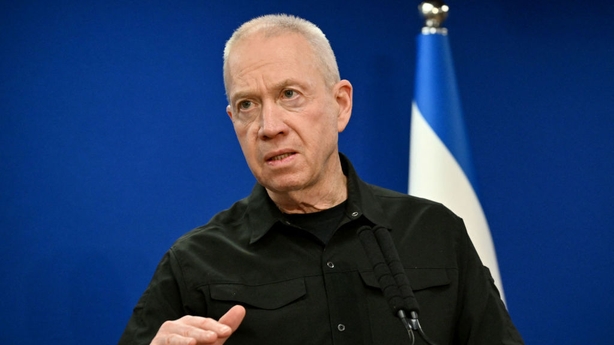Israeli minister Benny Gantz has announced his resignation from Prime Minister Benjamin Netanyahu's emergency government, withdrawing the only centrist power in the Israeli leader's far-right coalition amid a months-long war in Gaza.
The departure of Mr Gantz's centrist party will not pose an immediate threat to the government.
But it could have an impact, leaving Mr Netanyahu reliant on hardliners, with no end in sight to the Gaza war and a possible escalation in fighting with Lebanese Hezbollah.
Last month, Mr Gantz presented Mr Netanyahu with an 8 June deadline to come up with a clear day-after strategy for Gaza, where Israel has been pressing a military offensive against the ruling Palestinian militant group Hamas.
Mr Netanyahu rejected the ultimatum soon after it was given.

Mr Gantz said politics was clouding strategic decisions in Mr Netanyahu's cabinet.
Quitting while hostages were still in Gaza and soldiers fighting there was an excruciating decision, he said.
"Netanyahu is preventing us from advancing toward true victory," Mr Gantz said in a televised news conference.
"That is why we are leaving the emergency government today, with a heavy heart but with full confidence," he added.
Mr Netanyahu responded in a social media post, telling Mr Gantz it was no time to abandon the battlefront.
With Mr Gantz gone, Mr Netanyahu would lose the backing of a centrist bloc that has helped broaden support for the government in Israel and abroad, at a time of increasing diplomatic and domestic pressure eight months into the Gaza war.
While his coalition remains in control of 64 of parliament's120 seats, Mr Netanyahu will now have to rely more heavily on the political backing of ultra-nationalist parties, whose leaders angered Washington even before the war and who have since called for a complete Israeli occupation of Gaza.
This would likely increase strains already apparent in relations with the United States and intensify public pressure at home, with the months-long military campaign still not achieving its stated goals - the destruction of Hamas and the return of more than 100 remaining hostages held in Gaza.

Polls have shown Mr Gantz, a former army commander and defence minister, to be the most formidable political rival to Mr Netanyahu, whose image as a security hawk was shattered by the 7 October attack by Hamas on Israel.
Warning that the conflict in Gaza could take years, he urged Mr Netanyahu to agree on an election date in the autumn, to avoid further political infighting at a time of national emergency.
Mr Gantz joined a unity government soon after 7 October as part of Mr Netanyahu's inner war cabinet where he, Mr Netanyahu and Defence Minister Yoav Gallant alone had votes.
Mr Gantz described Mr Gallant, who has sparred with Mr Netanyahu and some ultra-nationalists ministers, as a brave leader and called on him "to do the right thing," though he did not elaborate on what that meant.
Far-right National Security Minister Itamar Ben-Gvir demanded Mr Gantz's now vacant seat at the war cabinet soon after the resignation was announced.
Finance Minister Bezalel Smotrich said in a statement Mr Gantz was giving Israel's enemies what they want.
Asked whether he was worried about his departure impacting Israel's standing abroad, Mr Gantz said Mr Gallant and Mr Netanyahu both know "what should be done".
"Hopefully they will stick to what should be done and then it will be okay," he said.
Read more: Gantz: Israeli general turned political tactician

